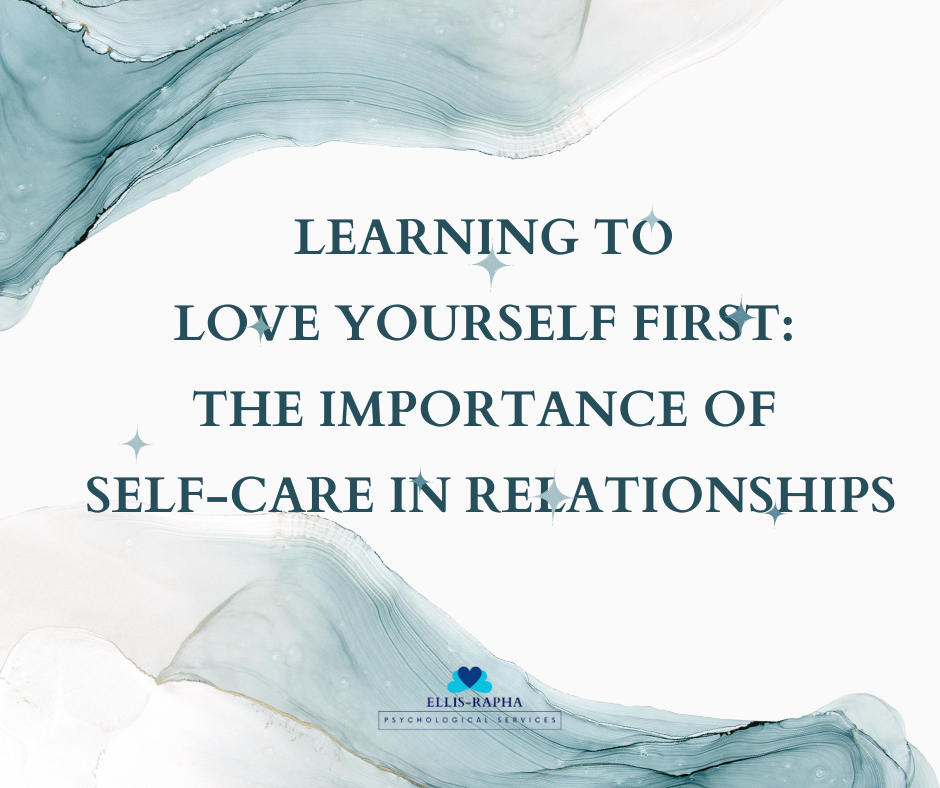As a clinical psychologist who specializes in young adult mental health issues, I have seen many clients who struggle with relationship problems due to a lack of self-love and self-care. It is important to remember that a healthy relationship starts with a healthy individual, and that means learning to love and care for yourself first.
Intentionally taking steps to support your physical, emotional, and mental wellbeing is known as self-care. It is the practice of loving and being kind to oneself. Self-care is crucial because it enables people to maintain a positive relationship with themselves, which in turn strengthens their interpersonal connections.
Finding the self-care strategy that works best for you might take different forms. Getting adequate sleep, eating healthily, working out frequently, meditating, setting aside time for enjoyable hobbies or activities, spending time with loved ones, saying no to things that don’t benefit you, and maintaining healthy boundaries are some popular self-care practices.
Self-care can increase productivity, lower stress and anxiety, boost mood and self-esteem, improve relationships with others, and lead to an overall sense of well-being.
It’s important to prioritize self-care and make it a part of your daily routine. It’s easy to get caught up in the busyness of life and forget to take care of ourselves, but making self-care a priority can lead to a happier, healthier, and more fulfilling life.
Here are some strategies for learning to love yourself first and practicing self-care in relationships:
Set boundaries: It is important to set boundaries in your relationships and communicate them clearly to your partner. This includes boundaries around your time, energy, and personal space. When you prioritize your own needs and boundaries, you send a message that you value yourself and expect others to do the same.
Practice self-compassion: Be kind and gentle with yourself, especially when you make mistakes or face challenges in your relationships. Self-compassion involves treating yourself with the same kindness and care that you would offer to a friend who is struggling.
Take care of your physical health: Exercise regularly, eat nutritious foods, and get enough sleep. When you take care of your physical health, you feel better mentally and emotionally, which can help you to be more present and engaged in your relationships.
Pursue your passions: Make time for hobbies and interests that bring you joy and fulfillment. When you pursue your passions, you are investing in yourself and demonstrating self-love.
Seek support when needed: It is okay to ask for help when you need it. Whether it’s from a trusted friend, family member, or mental health professional, seeking support can help you work through relationship challenges and learn to practice self-care.
Remember, learning to love yourself first is not selfish or self-centered. It is a necessary step in building healthy and fulfilling relationships with others. By prioritizing self-care and self-love, you will be better equipped to show up fully in your relationships and receive love in return.


